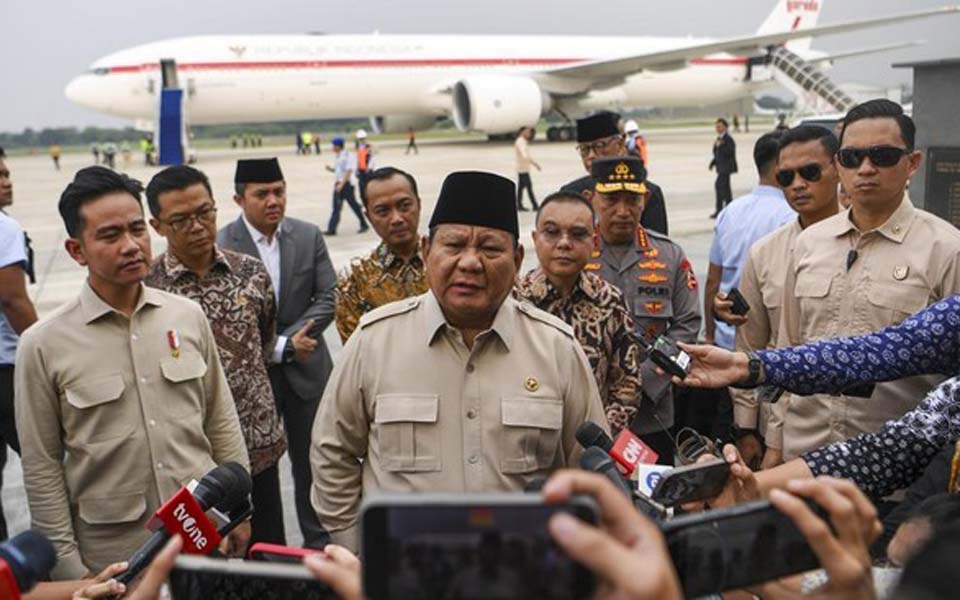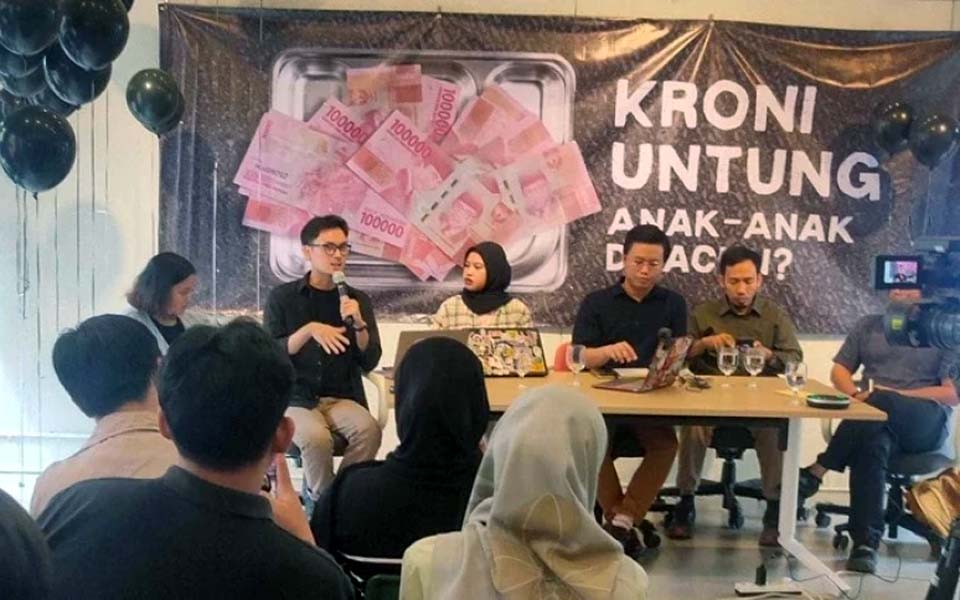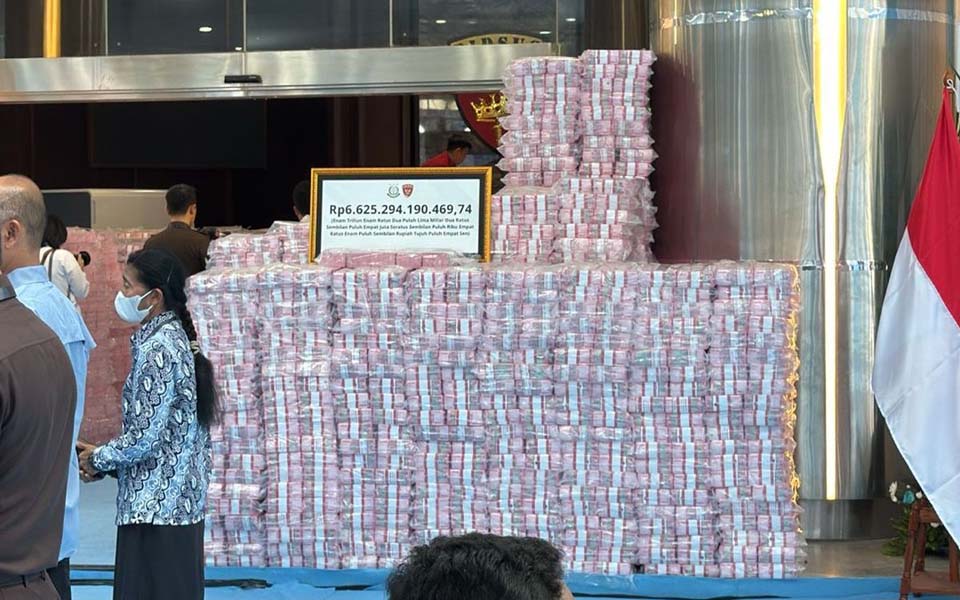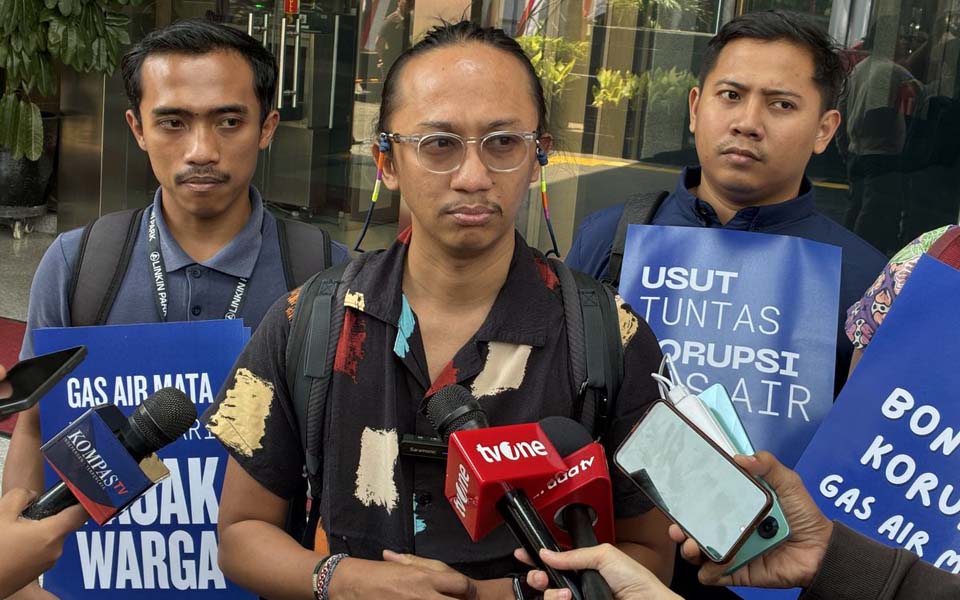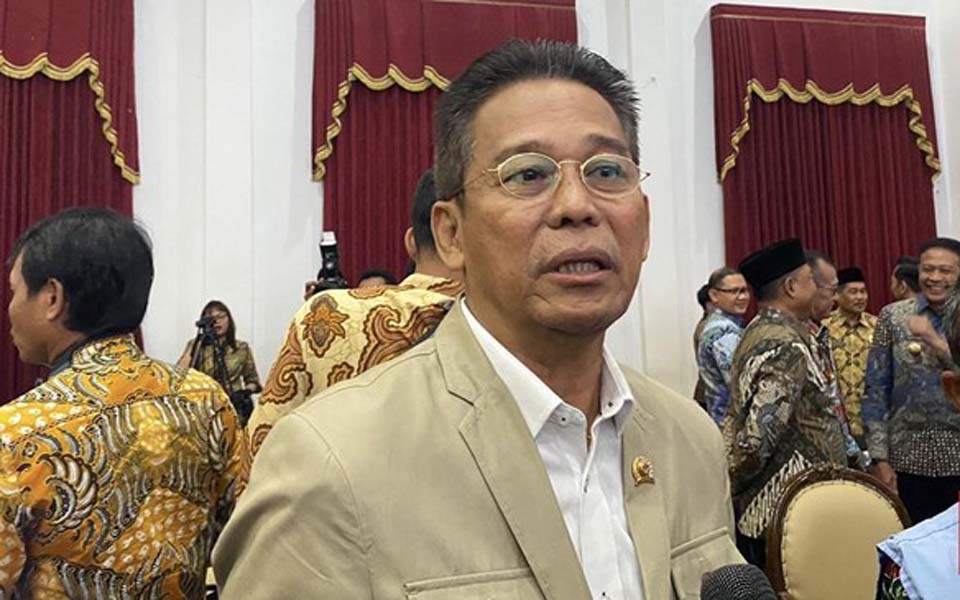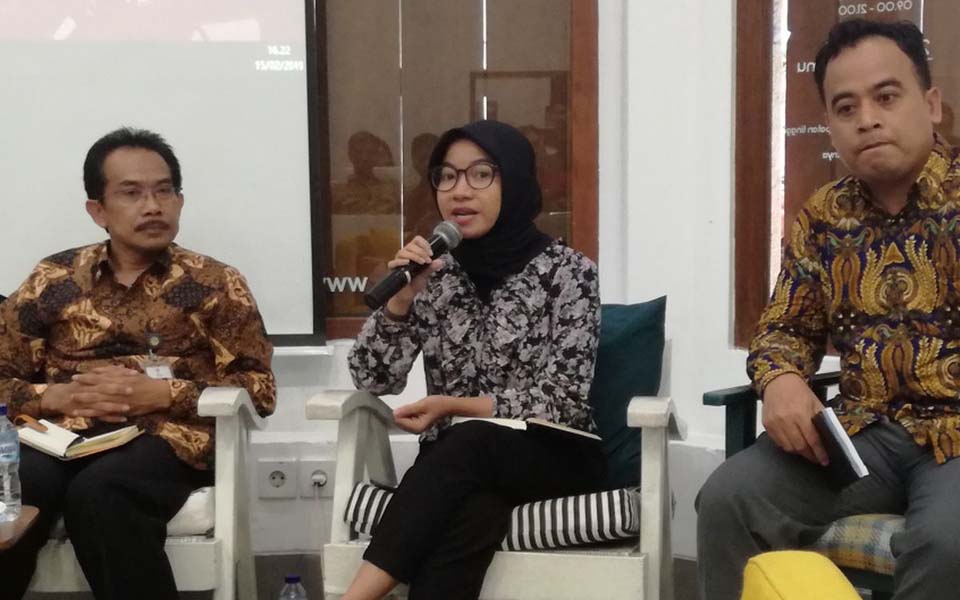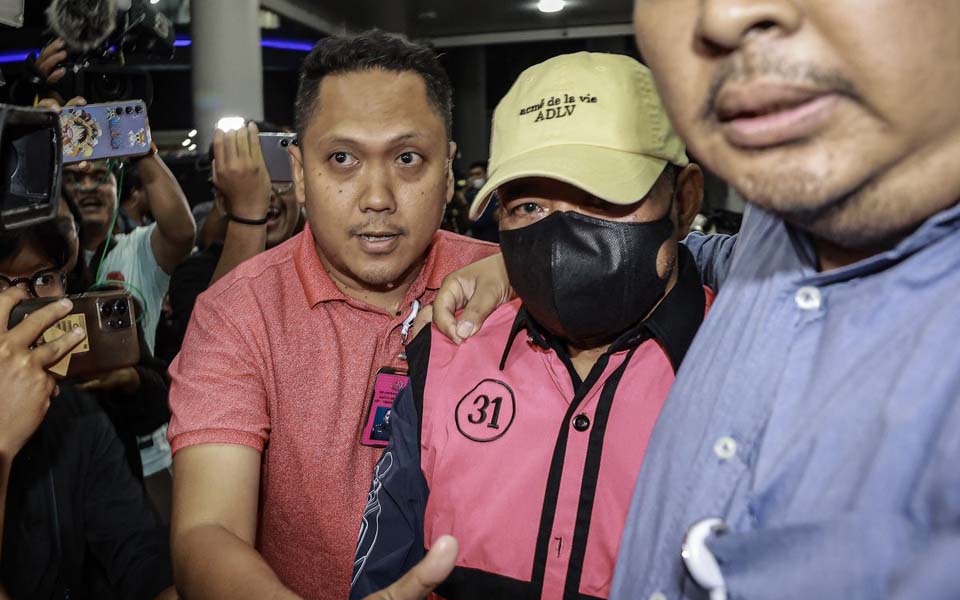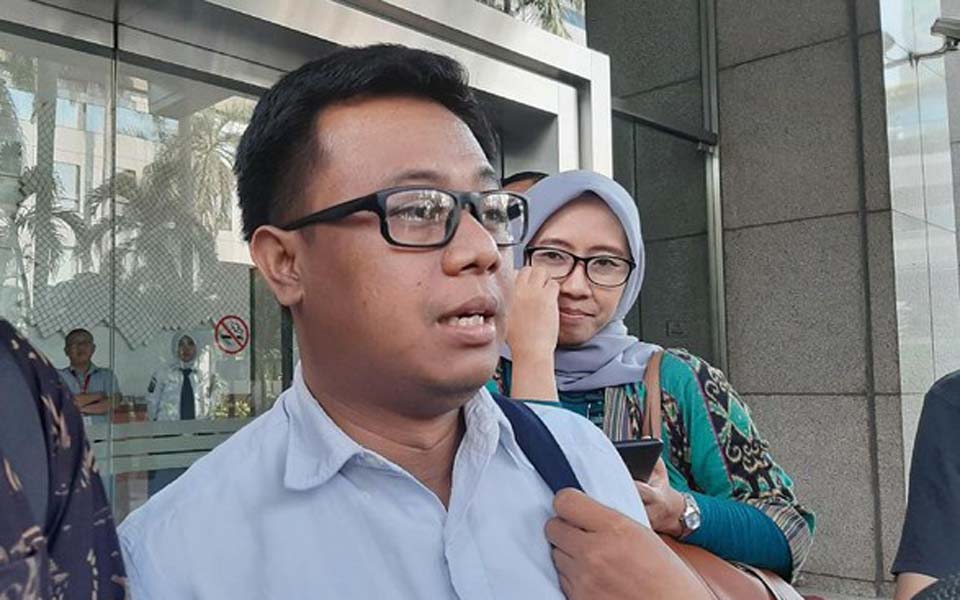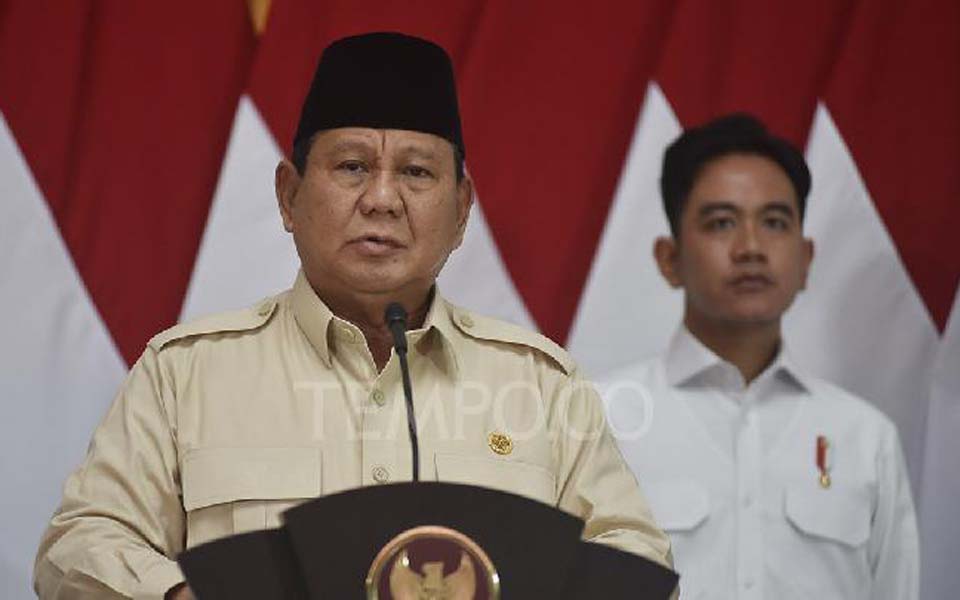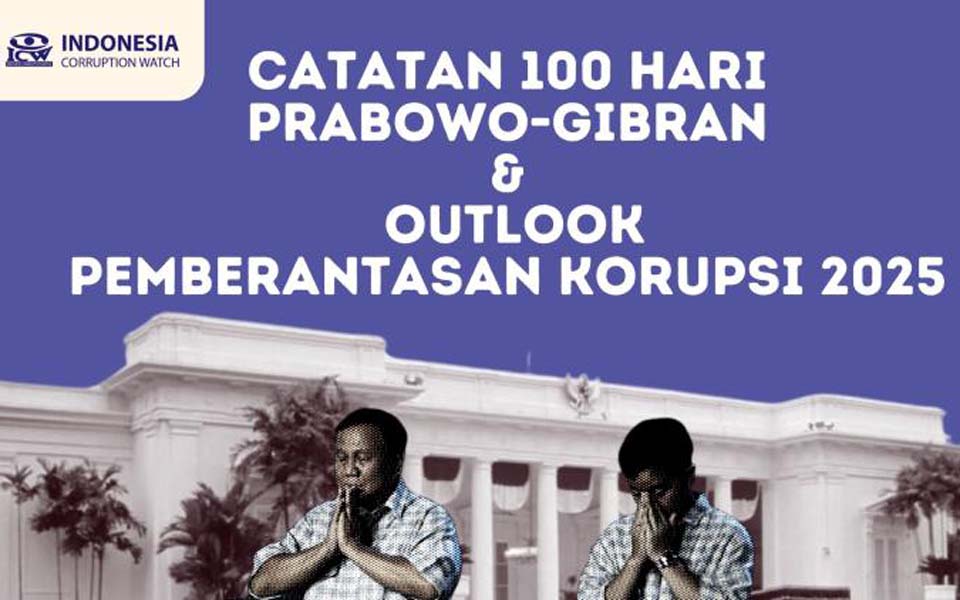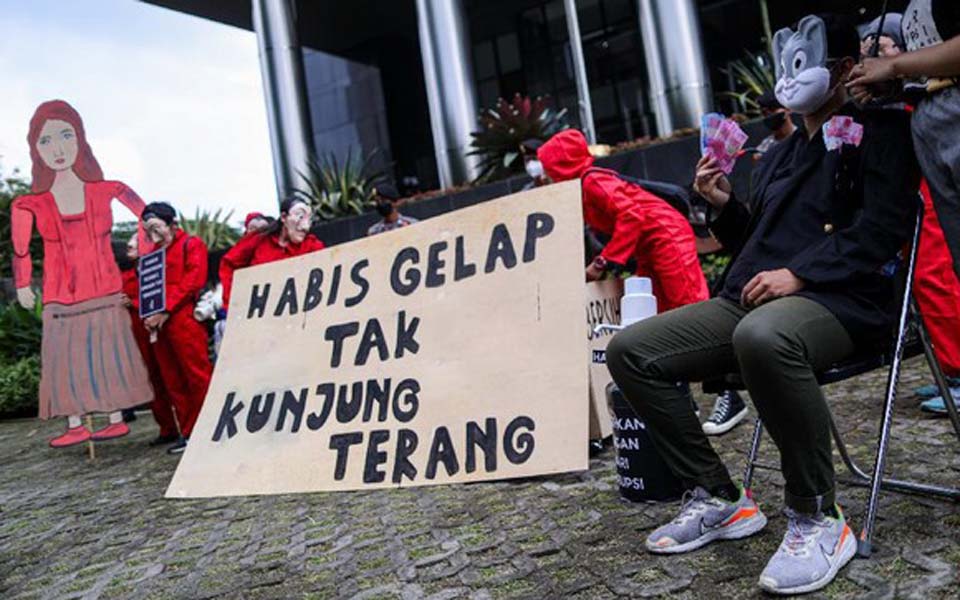Jakarta – Anti-corruption activists through to academics have strongly criticised Indonesian President Prabowo Subianto’s granting of amnesty and abolition to two defendants in alleged corruption cases, namely Indonesian Democratic Party of Struggle (PDI-P) Secretary General Hasto Kristiyanto and the Trade Minister for the period August 2015 to July 2016, Thomas Trikasih Lembong (Tom Lembong).
Amnesty is the President's right forgive criminal perpetrators, while abolition is the right of the head of the state to cancel the prosecution or sentencing of criminal perpetrators. Despite having this right, the president must still consult with the House of Representatives (DPR).
Andalas University Faculty of Law lecturer Feri Amsari believes that the law is being played with. He said the granting of amnesty and abolition as a consequence of the politicisation of the courts.
"The law is being played with. If you want to forgive Hasto and Tom, why must it be so much like this: a drama in the court first. Why not from the start [of the legal process]. Aren’t the National Police, the Attorney General’s Office and the KPK [Corruption Eradication Commission] under the President", Amsari said when sought for confirmation on Friday August 1.
Amsari is of the view the decision issued by Prabowo not only sets a bad precedent for eradicating corruption in the future, but also for a healthy judicial system.
"This is an opportunity for politicians to take advantage of the situation. So, in the end people are tired of all the judicial dramas, but later there will be political heroes behind the scenes", he said.
Meanwhile, University of Mulawarman Faculty of Law lecturer Herdiansyah Hamzah ("Castro") stated that Prabowo's decision to give amnesty and abolition in corruption cases is wrong and must be criticised.
According to Hamzah, the reasons conveyed by the government through Minister of Law Supratman Andi Agtas, who said the granting of amnesty for Kristiyanto and Lembong to maintain unity, was baseless.
"Amnesty and abolition, it is as if they are being used as a tool of political compromise", Castro said in a voice message.
He also explained that giving of amnesty and abolition was different in the context of the post New Order (Orba) era when many political prisoners received amnesty from the Indonesia's 3rd president BJ Habibie.
"This is a corruption case, right. That must be emphasised. This is a corruption case. And it seems that there has never been any corruption given by amnesty or abolition bearing in mind the level it was carried out. So, it's wrong", he continued.
Castro is of the view that the decision Prabowo had just taken will set a bad precedent for eradicating corruption in the future. He views it as a step towards weaken the commitment of the movement against corruption.
"It will clearly weaken the commitment of our movement to fight corruption", he said.
He added that if Kristiyanto and Lembong feel that what they have been fighting for all this time was on the path of truth, then granting of amnesty or abolition should have just been rejected.
"They should have rejected amnesty or abolition. So then what was the fight that they were convinced was true", he said.
Concern and disappointment
The former KPK senior investigator Novel Baswedan says he is disappointed because amnesty and abolition were used by Prabowo as the president to forgive defendants in corruption cases.
"I was concerned and disappointed when I heard that amnesty and abolition were used in corruption cases", Baswedan said when sought for confirmation in a written message on Friday.
He warned that corruption is a serious crime and is a betrayal of the interests of the state.
According to Baswedan, when the resolution of a corruption cases is done politically, it sets a bad precedent for eradicating corruption in the future. Moreover, the amnesty and abolition were given in the midst of worsening corruption practices and the KPK being paralysed.
In the case of Lembong, Baswedan is of the view that the court should have dismissed the case to begin with because there was insufficient evidence against him. Moreover, according to Baswedan, the accusation of corruption over the import of raw sugar has no causality with losses to the state that were in question.
"Because when a wrong law enforcement process is left unaddressed it will become a threat to state officials and state companies in policy and decision making carried out in good faith and following the principles of good corporate governance", he said.
Meanwhile in the alleged bribery case against Kristiyanto, Baswedan said the case involved a series of actions and several crimes that were committed and even involved several different people, both those who have already been sentenced and those who are on the run (fugitives).
He said he regretted that instead of pushing for the big case that is suspected to have occurred before the crime of bribery was committed, Kristiyanto was forgiven or given amnesty.
"From my explanation above, of course the move to give amnesty and abolition are not in accordance with the president's speeches in which [he said he would] wipe out the practice of corruption. In fact this will give the impression that eradicating corruption does not have a place or support from the government and the DPR", he said.
The Indonesia Calling Institute (IM57+), which was established by former KPK employees, believes that the granting of amnesty and abolition to Kristiyanto and Lembong is an attempt to circumvent the law.
"This is a blatantly obvious form of an effort to circumvent applicable laws", said IM57+ Institute Chairperson Lakso Anindito in a written message on Thursday evening.
According to the IM57+, the granting of amnesty and abolition to defendants in corruption cases is very dangerous, bearing in mind that in the end the resolution of the corruption cases was done through a political agreement at a negotiation table that betrayed the people.
"This could set a bad precedent for the process of law enforcement in this country and is a betrayal of the promise of eradicating corruption expressed by the president himself", said Anindito.
"In the future, politicians will not be afraid of committing corruption because a resolution can be done through political agreements", he added.
Anindito called on the wider community to reject the president's decision to give amnesty and abolition to the Kristiyanto and Lembong.
"This action must be rejected massively because if left unchecked it will result in the collapse of the rule of law building and change it to become rule by law for the law enforcement process in this country", said Anindito.
In a statement, Anindito was critical of the decision to give amnesty and abolition, referring to it as being very much in conflict with the claimed commitment to eradicate corruption which is often touted by President Prabowo.
"This indicates that the president has absolutely no commitment to the eradication of corruption and it's just omon-omon [a phrase coined by Prabowo meaning empty talk]. In the midst of the KPK's serious efforts to uncover an outstanding case, the President instead chooses to forgive them", said Anindito. (ryn/kid)
[Translated by James Balowski. The original title of the article was "Akademisi Kritik Amnesti-Abolisi Kasus Korupsi: Hukum Dipermainkan".]





